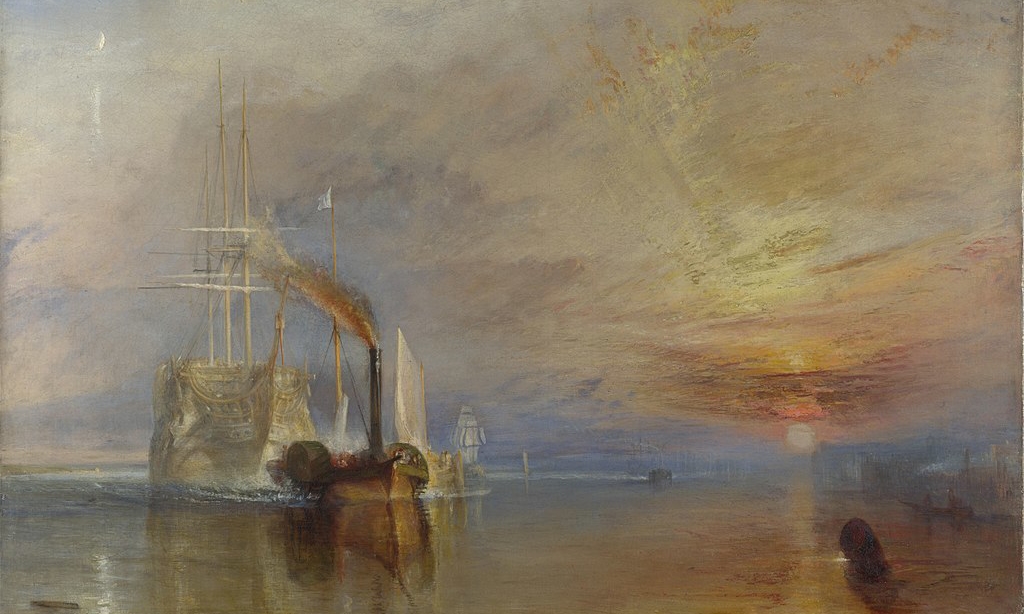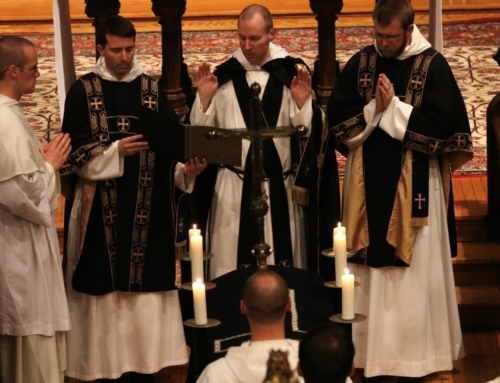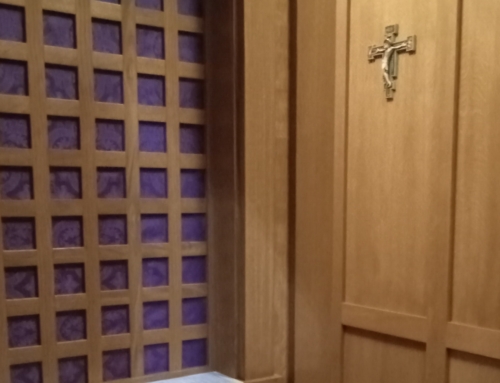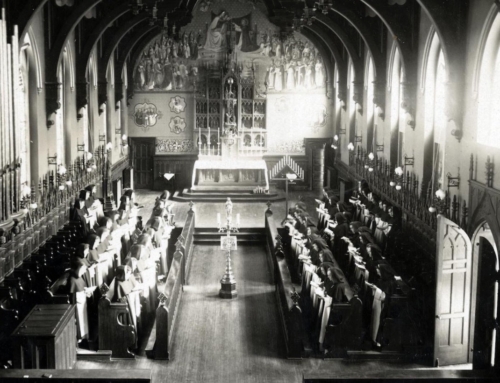Down dropt the breeze, the sails dropt down,
‘Twas sad as sad could be;
And we did speak only to break
The silence of the sea! …
Day after day, day after day,
We stuck, nor breath nor motion;
As idle as a painted ship
Upon a painted ocean.
Water, water, every where,
And all the boards did shrink;
Water, water, every where,
Nor any drop to drink.
The sailors in Coleridge’s poem Rime of the Ancient Mariner find themselves becalmed in the South Pacific under a blistering sun. In this discouraging situation, the supplies of fresh water have run out, and the salty sea silently taunts them with its undrinkable water.
Heraclitus saw the irony, for “the sea is the purest and most polluted water: for fish drinkable and healthy, for men undrinkable and harmful.” And just as we need the right type of water to sustain our physical lives, so also we need the right water to sustain our spiritual lives.
The experience of these sailors is reflected in our periods of dryness in prayer: thirsty and yet surrounded by water. Our churches are certainly grand and beautiful, but what happens when we kneel down for prayer? Many times the splendor lifts us up to God. Other times we may feel nothing, or we may even become intimidated by the silence and the static statuary. Just like for the Ancient Mariner, we might experience a discouraging irony of finding boredom despite being surrounded by beautiful architecture, painted frescoes, or soaring music. Or perhaps we face restlessness within the calm stillness of an empty, silent, simple church.
These periods of dryness challenge all people, even those renowned for their prayerfulness. Some find it tedious to pray because they are not used to it and become self-conscious. Early in her faith life Dorothy Day found prayer difficult because she “felt like a hypocrite if I got down on my knees, and shuddered at the thought of anyone seeing me.” Even St. Teresa of Calcutta wrote about long periods of “coldness and emptiness” despite praying for several hours a day. It is clear therefore that dryness affects all Christians at some point, even the saints.
So, what can we do when stuck in the doldrums of our spiritual life and in need of water? The Ancient Mariner hoped for “any drop to drink,” but where can we find this water for our spiritual life? It might be as simple as knowing where to get it and then asking for it. That seems to be a lesson from John’s Gospel, when Jesus spoke with the woman at the well. She has come to the well on a dull errand to fill her jug as part of her daily chores. However, meeting her there, Christ offers her something more: “whoever drinks the water I shall give will never thirst; the water I shall give will become in him a spring of water welling up to eternal life.” If we want to break out of our dryness, we can’t do it ourselves, but only with Christ’s help. Then, like the woman, we should immediately implore, “Sir, give me this water.” His response may not be immediate, but we can be confident that, even when we don’t feel anything, Christ is “hydrating” us and won’t leave us in the doldrums forever.
✠
Image: J. M. W. Turner, The Fighting Temeraire







